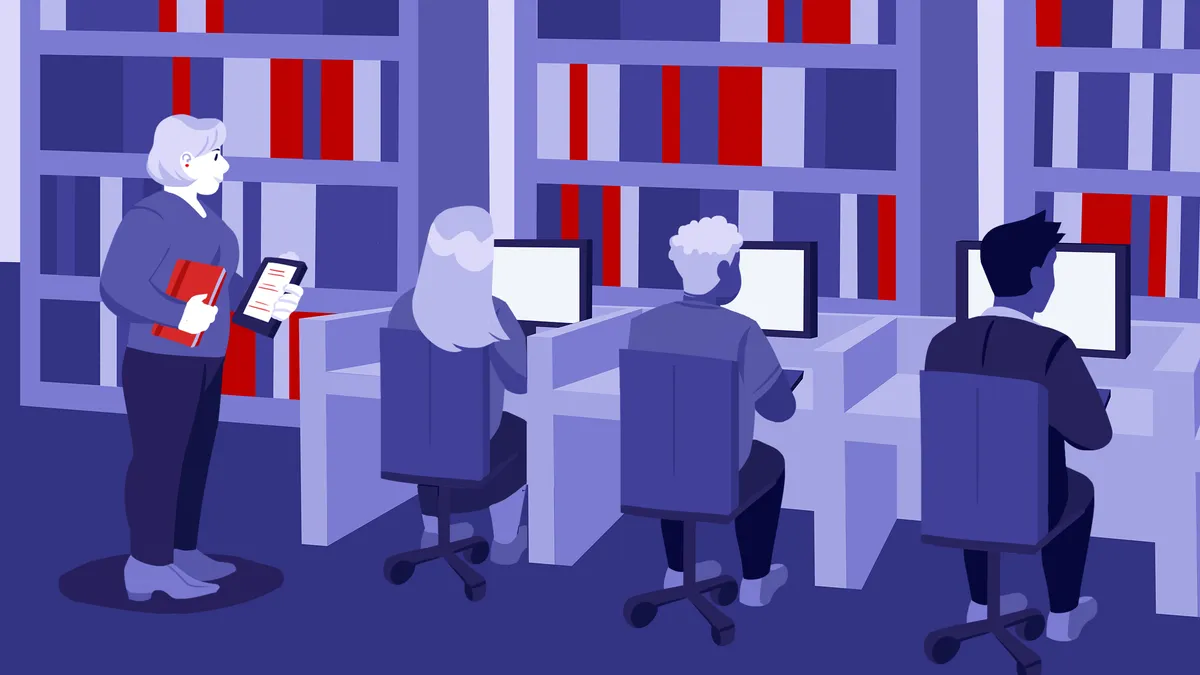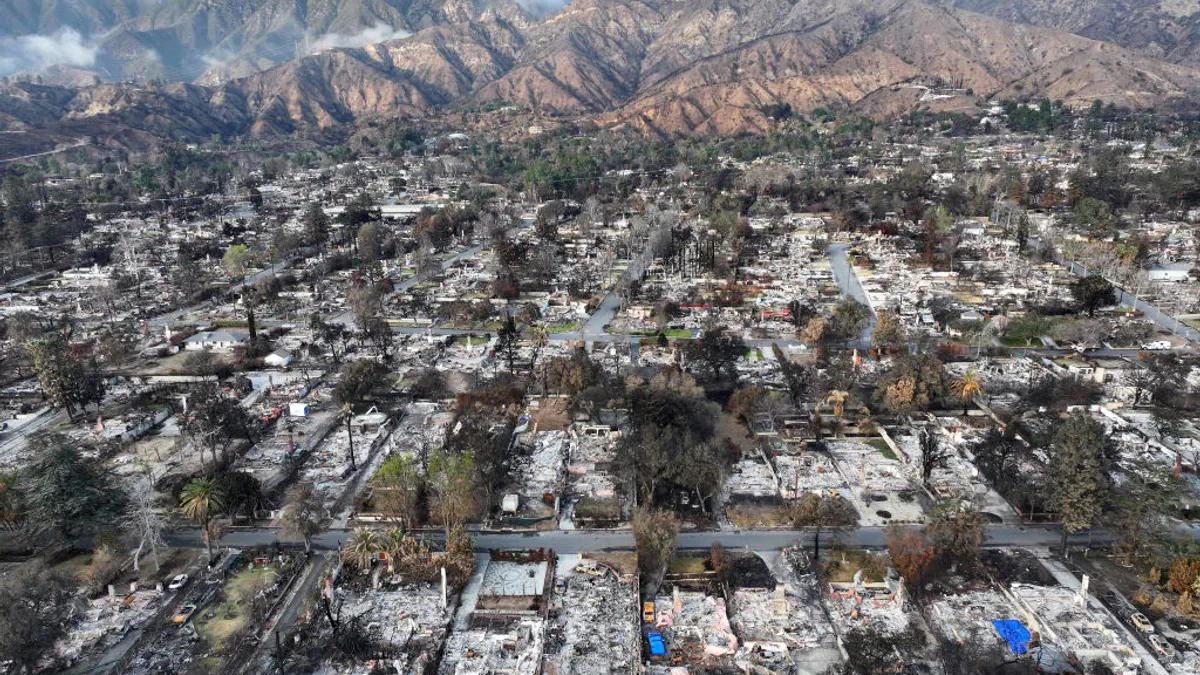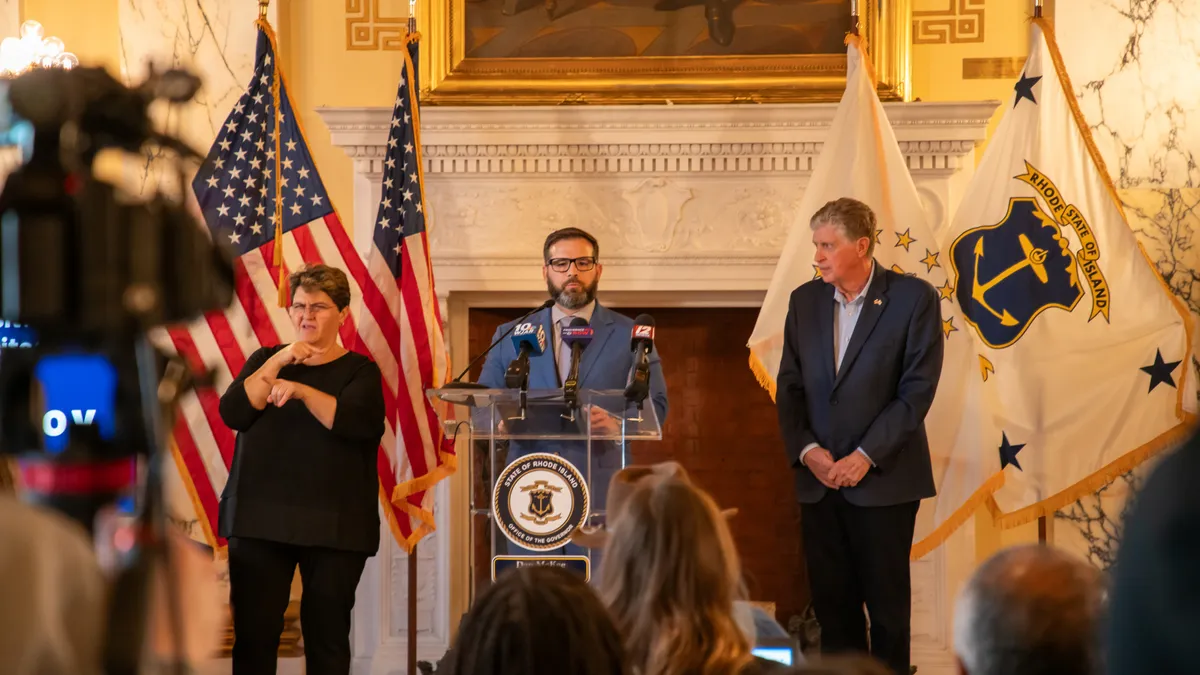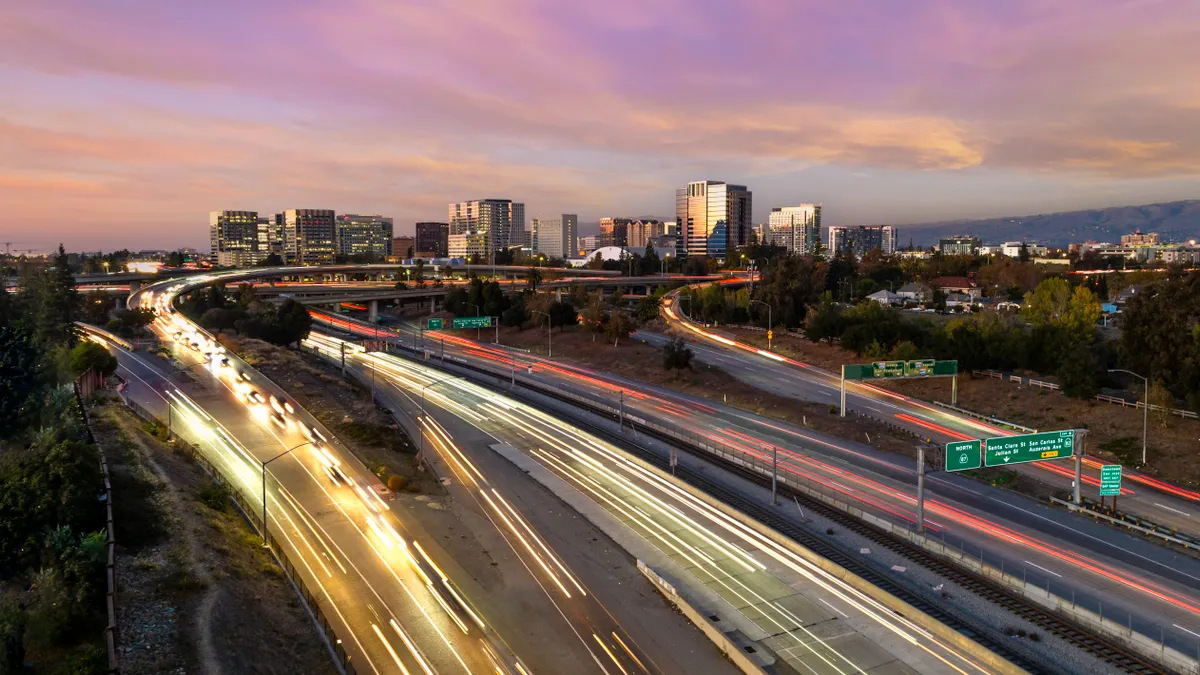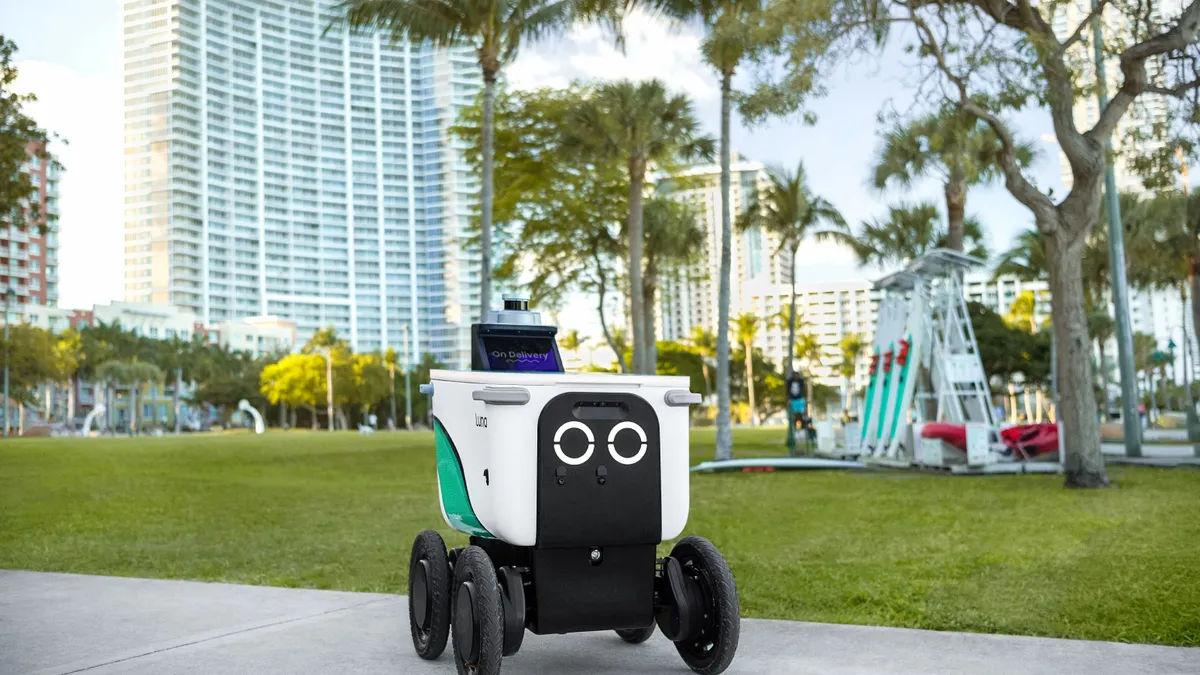The San Antonio Public Library is already hard at work on the upcoming census. It's training staff to help residents take the count online; setting up spaces to recruit and hire census workers; and assuaging fears about the Trump administration’s proposed "citizenship question."
Even toddler story time has become an opportunity to remind parents about counting their young children, San Antonio Public Library Director Ramiro Salazar told Smart Cities Dive.
Libraries are playing an increasingly essential — and sometimes overlooked — role in the upcoming count, particularly as the census is conducted mostly online for the first time.
As one of the most trusted public institutions, libraries are uniquely positioned to help cities overcome some of the biggest barriers to achieving a complete count. While much of this census-related work is not being funded by state and local governments, libraries are still engaging in these efforts as the appropriation of federal funding is at stake.
Not just a place for books
City leaders often think of libraries as places just for books, but their work involves much more, American Library Association (ALA) Deputy Director for Public Policy and Advocacy Larra Clark told Smart Cities Dive.
"Libraries can play a really important role," she said. "But people have to think about us and we have to raise our hand and say we’re here."
And the stakes for libraries in this year’s census are high. Over $1 billion in federal funding stands to be allocated to states for their libraries, depending on the count. As a result, the ALA census planning committee has spent the last two years preparing for the count.
Some of that preparation has included serving on Complete Count Committees; communicating questions and concerns to the Census Bureau; connecting with legislators, advocates and civil rights leaders and even hosting job fairs to help to fill the 500,000 available Census positions, according to Clark.
Going digital
Online access to the census form is perhaps the biggest change that librarians, city leaders and Census Bureau workers alike are preparing for in 2020.
There can be many benefits to conducting the count online, including the accessibility of 13 different languages, Clark said. But the digital count can also raise concerns about access and comfort for those individuals who don’t regularly use computers or smartphones.
More than 24 million Americans don’t have access to high-speed internet at home. Libraries are well-equipped to help overcome that gap. Each of the country’s more than 16,500 libraries provide access to computers, Wi-Fi and the internet, according to Clark.
Libraries are also prepared to take their Wi-Fi hotspots and devices out into the community. New York's Suffolk Cooperative Library System is doing just that with its Bookmobile that will be driven throughout the area to reach residents.
The Bookmobile or "SLED" — Suffolk Libraries Empowering Discovery — is like a "Swiss Army knife," Assistant Director of the South Huntington Public Library Nick Tanzi told Smart Cities Dive. The outside of the vehicle functions as a billboard of census-related images and decals, while the inside is filled with information, including a sample questionnaire to show people what an authentic 2020 form looks like.
Thanks to the Suffolk Cooperative Library System for providing their SLED to help us boost awareness ahead of #Census2020! This bookmobile is stocked with census info & is being used in conjunction with formal workshops for the public. pic.twitter.com/uPixMiG8o2
— Nick Tanzi (@Techie_Lib) February 28, 2020
Battling misinformation
Libraries are also critical in the fight against misinformation. This is nothing new for libraries, but the stakes are much higher for the census, Clark said. In Allentown, PA, the Bradbury-Sullivan LGBT Community Center's LGBT library is using its space to stop misinformation and inform LGBT residents about the new household relationship question.
Bringing the count online has also added new concerns about scams. Librarians will be essential to help ensure residents don’t become victims to fraud, she said.
Fake social media posts began cropping up after the U.S. Supreme Court ruled in June 2019 that the Trump administration could not add a citizenship question to the census, the Associated Press reported. Tech companies like Twitter, Google, Pinterest and Facebook have all been targeted in the spread of misinformation, prompting the companies to create plans to battle misinformation specifically related to the census.
Libraries are well suited to address these concerns, particularly in regards to the citizenship question, because they act as safe havens where people feel protected, according to Salazar with the San Antonio Public Library. "We understand there are folks who are undocumented so we are trying to help ease those concerns," he said.
The proposed citizenship question was a "scare tactic" to dissuade undocumented people from participating in the census, Ana Ndumu, assistant professor of information services at the University of Maryland, told Smart Cities Dive.
Libraries are trusted public messengers that now have to "bear the burden" of addressing those fears, she said. And as more government surveys like the census go digital, there’s the added risk of leaving behind some communities, including immigrants.
"For communities that live offline, smart cities may create a new tier or hierarchy within society," Ndumu said.
Funding challenges
New York City has invested over $1.4 million in its three public library systems to help secure a complete count. And the City of Baltimore, where 30% of residents lack proper internet access, received a $250,000 grant to work closely with local libraries and support census outreach, according to American Libraries Magazine.
Georgia’s Cobb County Library system secured a $39,000 technology grant from the state to be used for new laptops and computers dedicated to the census. They now have 16 desktop computers, with one in each of their branches, and three kits of 10 laptops that will be used for outreach events especially in hard-to-count-areas, Cobb County Library Director Helen Poyer told Smart Cities Dive.
Some of the Cobb County Library’s census efforts have included providing the mobile laptop kits to be used at NAACP events, using Geographic Information Systems to identify and target areas that had a low census response rate in 2010, and working with schools and other community partners to identify other hard-to-count-areas.
They are even planning to play a ukulele along with the official kid's census song to reach caregivers, she said.
Heavily-funded census work, however, is "not as common as we’d like to see," ALA's Clark said. "There’s an element of this work that goes unfunded."
In fact, funding is a common challenge for libraries supporting the census count.
The ALA, for example, worked with Census funders to secure 59 mini-grants for $2,000 each for libraries to support technology improvements, programs, promotions and other activities. More than 500 libraries applied and 90% of the applicants said they didn’t have other funding available to support their census work, Clark said.
As city leaders budget to support census outreach and engagement, libraries should be part of that plan, according to Clark.
"Libraries do this good work day in and day out and it’s not always visible to our city leaders," she said. "We want to make sure that city leaders are thinking about libraries."
Correction: This story has been updated to reflect the proper funders of the ALA mini-grants.



